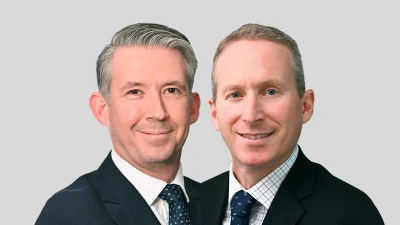Global emerging markets set to sustain economic growth
Global emerging markets can no longer be viewed by investors as a short-term opportunity to reap premium returns because the rate of economic growth generating the high returns are likely to be sustained for a significant period of time, according to a top executive of a global asset management company.
Speaking at a financial services presentation, Schroders Investment Management head of global emerging market equities Allan Conway said: “These economies are gaining momentum of their own which we haven’t seen in such a way before.”
He feels investors should be looking to sustain their emerging market portfolio allocation to continue to receive solid returns with a greater degree of portfolio diversification.
Conway said the attitude of investors towards emerging markets now needed to change.
“Those people that are taking a rather more bearish view of emerging markets now do so because of the lesson of history. In the past when you hit a cyclical peak in the global economy you wanted to sell emerging markets. The reason for that’s been quite clear, emerging markets have been very export dependent,” Conway explained.
However, he said in the past few years the emerging markets have developed to an extent where economic growth is not almost entirely dependent on exports from developed countries.
“The growth from emerging economies is increasingly coming from domestic demand and inter-regional trade. The reliance on exports from OECD (organisation for economic co-operation and development) countries has been declining… We have a situation now where China is a more important export market for Asia than the US is,” he said.
Conway suggested another factor is that the sustainability of the level of economic growth in emerging markets is an improvement to the underlying fundamentals of these economies.
“This is supported by almost any measure you care to look at. Foreign reserves are at a record high. China alone has got $1 trillion of reserves. There has been a massive reduction in debt levels, and there are significant surpluses in trade balances. Also the days of hyperinflation in emerging markets are dead, with even Turkey looking at single digit inflation,” he explained.
“That is a very, very different world to the one people historically have seen and have led people to say ‘Well in the past emerging markets should be a sell if the global economy is turning down’.”
Recommended for you
With an ESG product labelling consultation currently ongoing, Zenith’s head of responsible investment agrees the existing system for funds is so unclear that people may be better off ignoring it.
The global investment market is looking to China as a roadmap to success, as the nation pioneers technological development in AI and robotics, Australia-China Relations Institute Professor Marina Yue Zhang has said.
International asset manager Robeco has appointed a new chief investment officer as incumbent Mark van der Kroft departs the firm after 25 years.
Regal Partners has regained the funds under management lost after the Opthea failure to close out the financial year at $18.9 billion.













